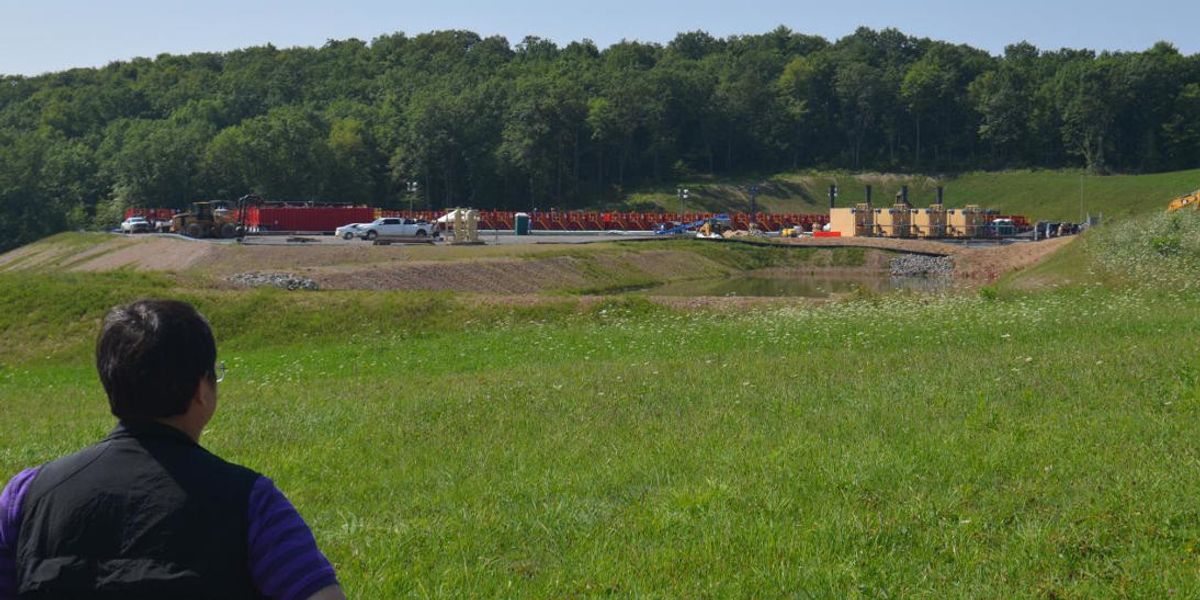
Pennsylvania Superior Court rules that fracking natural gas from a neighboring property is trespassing
Landmark ruling could open the door to "hundreds of trespass lawsuits"
On Monday the Pennsylvania Superior Court issued an opinion that could have major ramifications for the hydraulic fracturing industry in the state: It states a company trespassed on a family's land by extracting natural gas from beneath their property while operating a fracking well next door.
The Briggs family owns about 11 acres of land in Harford Township in Susquehanna County. When Southwestern Energy began operating an unconventional natural gas well on the adjacent property in 2011, the Briggs declined to lease their mineral rights to the company for development. In 2015, they filed a complaint that Southwestern was trespassing by extracting gas from beneath their property without a lease.
Southwestern didn't dispute they'd removed natural gas from beneath the Briggs' land, but argued they weren't trespassing due to the "rule of capture," which says the first person to "capture" a natural resource like groundwater, gas or oil owns it, regardless of property lines.
A lower court agreed with Southwestern and issued a summary judgement in their favor, but yesterday's Superior Court opinion overturns that decision, stating that the rule of capture shouldn't apply to unconventional natural gas drilling because of key differences in the method of extraction.
"Unlike oil and gas originating in a common reservoir, natural gas, when trapped in a shale formation, is non-migratory in nature," the opinion states. "Shale gas does not merely 'escape' to adjoining land absent the application of an external force. Instead, the shale must be fractured through the process of hydraulic fracturing; only then may the natural gas contained in the shale move freely through the 'artificially created channel[s].'"
Ultimately, the Court said, "In light of the distinctions between hydraulic fracturing and conventional gas drilling, we conclude that the rule of capture does not preclude liability for trespass due to hydraulic fracturing."
The case has now been remanded to a lower court, which will rule on whether the Briggs are entitled to compensation from Southwestern Energy for trespassing on their property by taking natural gas without a lease. In the meantime, the family has been given the opportunity to further develop their trespass claim, including getting estimates of how far the subsurface fractures and fracking fluid crossed boundary lines into the subsurface of their property.
"I think this potentially has big ramifications for both drilling companies and property owners," said David E. Hess, the director of policy and communications for Harrisburg-based government affairs law firm Crisci Associates and former secretary of the Pennsylvania Department of Environmental Protection.
"If on remand the case requires compensation of the adjacent landowner for trespass as defined in the court decision, I think this could open the door to hundreds of potential similar trespass lawsuits filed all across Pennsylvania where unconventional gas well drilling occurs."
Hess pointed out it's hard to find an area in Pennsylvania's shale patch where existing natural gas extraction leases don't come up against property belonging to other landowners who didn't sell their mineral rights. He also speculated that before this ruling changes the way hydraulic fracturing operates in the state, there would likely be an attempt to clarify the law.
"I think if people perceive this as a threat to the industry," Hess said, "we'll soon see legislative attempts to redefine the rule of capture in Pennsylvania."
Monday's Superior Court opinion differs from similar cases in other states.
Referencing a case in Texas where the fracking company won (Coastal Oil & Gas Corp. v. Garza Energy Trust), the Pennsylvania Superior Court noted in Monday's ruling, "we are not persuaded by the Coastal Oil Court's rationale that a landowner can adequately protect his interests by drilling his own well to prevent drainage to an adjoining property. Hydraulic fracturing is a costly and highly specialized endeavor, and the traditional recourse to 'go and do likewise' is not necessarily readily available for an average landowner."
The Court also noted that applying the rule of capture to hydraulic fracturing is problematic, since it would allow companies to extract natural gas from anywhere without the need for a lease as long as they could set up a fracking well on an adjacent property.
Hess noted that Pennsylvania's laws are unique, so what's happened with regard to the rule of capture and hydraulic fracturing in other states is unlikely to impact how things play out here.
"I think this is going to be an important decision," he said, "but I think people will be chewing on this opinion for a long time to fully understand what it means."














